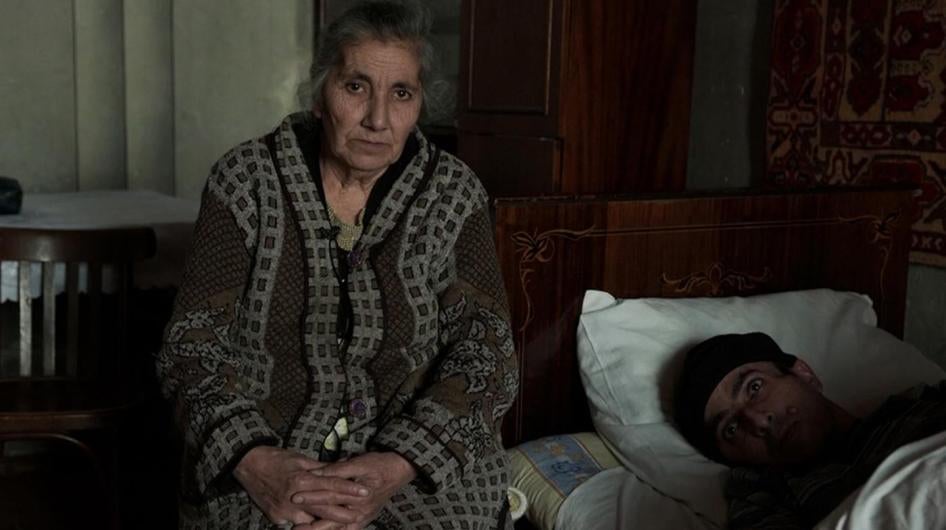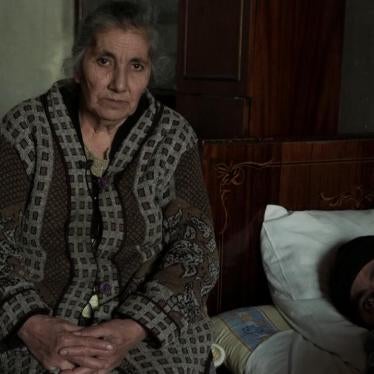About 8,000 people die from cancer in Armenia every year, many spending their last days in excruciating pain.
But Armenia has recently taken two important steps toward ending their suffering. In February, the government adopted a national strategy to introduce palliative care services, which focuses on pain relief and improving the quality of life, and in March, it registered two forms of liquid oral morphine, paving the way for their use in the public healthcare system.
The World Health Organization considers oral morphine, which is swallowed, the cornerstone of cancer pain treatment. Currently, only injectable morphine is available in Armenia.
The national strategy focuses on treating pain and other physical symptoms, and provides psychosocial support for people with life-threatening illnesses. It specifies reforms in policy, education, and medicines’ availability, and designates state institutions that will be responsible for carrying out these reforms.
In July 2015, Human Rights Watch published a report and video showing the impact of untreated pain and lack of support services on the lives of cancer patients and their families in Armenia. I interviewed many people who were dying – in horrible pain.
Lyudmila, a 61-year-old kindergarten teacher, told me, “The pain attacks start unexpectedly, and I start screaming and become a different person…. I can’t speak. I have pain attacks every night…. It’s ... unbearable pain for a human being….”
Her experience was not an exception.
When treatment to cure cancer is no longer effective, patients with advanced cancer in Armenia are sent home, essentially abandoned by the health care system at arguably the most vulnerable time of their lives. They face pain, fear, and anguish without professional support. Some of the support they need is palliative care.
Morphine, the mainstay medication for treating severe pain, is inexpensive and easy to administer, but fewer than 3 percent of those who need morphine in Armenia get it. That’s because of the nearly insurmountable bureaucratic barriers around the prescribing and dispensing of morphine, which the new strategy should change.
The Armenian government has long recognized the need for palliative care, yet took more than three years to develop and adopt the strategy and action plan and ensure that oral morphine is registered. The strategy recognizes the need to amend regulations restricting access to pain relief medications, and the government plans to review them in 2018. Armenia’s thousands of cancer patients have waited long enough.
|
Dispatches
Armenia Has New Strategy to Help Terminally Ill
Legal Changes Are Next Step to Get Treatment to Those in Need
Your tax deductible gift can help stop human rights violations and save lives around the world.
Region / Country
Topic
Most Viewed
-
February 20, 2026
Abuses in Cameroon After US Deports Third-Country Nationals

-
November 25, 2019
A Dirty Investment

-

-
April 27, 2021
A Threshold Crossed

-
January 23, 2018
Hidden Chains






